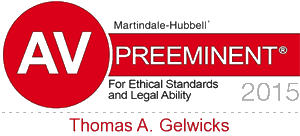Negotiating Techniques
The Silent Negotiator
There has been a spate of negotiation books, over the past decade, which discuss the so-called Asian bargaining strategies.
It is more common that I encounter opponents who attempt to emulate the Asian model, which is to use silence as a weapon. The ploy is to make the other party feel uncomfortable, thus encouraging them to keep talking. It the adversary is taken off their script even briefly, the argument goes, the odds are they will become distracted or will divulge more information.
The shrewdest negotiators I know listen a lot and speak less. Their ability to ask questions is refined, and it keeps the other side talking. But they do not attempt a naked strategy of going silent. The best technique is to have carefully planned questions, but to ask them in a more relaxed and casual manner. This subtly keeps you in better control of the discussion dynamics.
In any negotiation there is a rich subtext, and to that attention must be paid.
Be wary of opponents who introduce tangential issues. They are using red herring techniques to distract and to tire you. Later they will often concede a largely irrelevant point they previously emphasized, to lend the appearance they are working in earnest towards resolution.
The Success of “The Likeable Lawyer” Programs
Jeff Stec started his legal career in Cincinnati, and he has smartly developed The Likeable Lawyer programs into a large national success. Stec and his associates are among the brightest legal thinkers around today. The Likeable Lawyer approach to lawyering is extremely interdisciplinary. This is a long overdue approach to enriching and enlivening those in the legal trenches, every day.
Some regard Stec’s vision as too idealistic. But the model of professionalism he offers deserves careful consideration. Stec draws from philosophy, literature, history and many other disciplines to ask pointed questions others are reluctant to. While “out of the box” is a tired phrase, The Likeable Lawyer approach really does just that.
Stec’s lectures about the sphere of influence we all have, to expand or shrink. This is worth paying attention to. His ideas pertain to our dealings with colleagues, clients, judges, family members and friends – even ourselves.
While construction of persuasively logical arguments is our life’s work, we are invited to examine the emotional factors which allow a jury or opposing counsel or claims adjuster to really “hear” what we are saying. Stec is an expert in classical Greek philosophy. He has taken Aristotle’s view on humanity and encourages us to shift our exclusive focus with our client’s interest, to listening considerably more to the objectives harbored by the party across from us.
The “Pathos of Influence” concept of The Likeable Lawyer underscores that overlooked fundamental. Each organism crawling the earth is a bundle of unmet needs. Our ability to influence them is correlated to their perceptions that we care about them and their needs. How this “needs literacy” plays itself out in the areas of court and hearing rooms and law offices is what separates the truly effective lawyer from the marginally competent.

